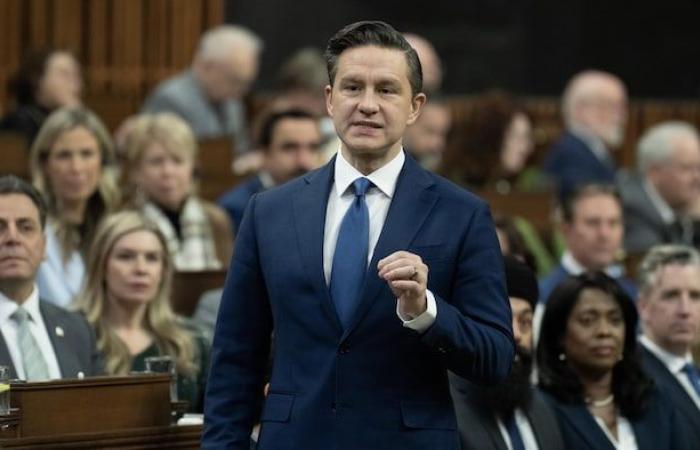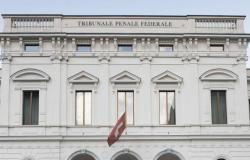The Speaker of the House of Commons intervened on Monday to end a parliamentary deadlock, by deciding that opposition days will take place later this week while the Conservatives had blocked the tabling of their own motion of censure in the morning.
Greg Fergus has scheduled opposition days for Thursday and Friday, meaning the government could face another motion of no confidence as early as next Monday.
His decision follows an unsuccessful attempt Monday morning by Government House Leader Karina Gould to suspend the parliamentary filibuster that has occupied much of the Commons’ time for nearly two months.
The Conservatives published the text of a motion last Friday that they planned to present in the House on Monday. The motion cited in the text New Democratic Party (NDP) leader Jagmeet Singh’s criticism of the Liberals in an effort to bring the NDP caucus NPD to overthrow the minority government of Justin Trudeau.
But MPs must give unanimous consent for an opposition motion to be tabled in the Commons to suspend debate on a question of privilege that has paralyzed almost all other business in the House for two months.
When the government House leader, Karina Gould, presented a motion to adjourn the debate on this parliamentary obstruction Monday morning, the Conservatives refused.
The debate on the question of privilege concerns a request by the Conservatives for the Liberals to provide the Royal Canadian Mounted Police with unredacted documents on allegations of embezzlement in a green technology fund, which no longer exists today.
Open in full screen mode
Pierre Poilievre’s Conservative Party is demanding that the Liberals provide the RCMP with unredacted documents on allegations of embezzlement in a green technology fund.
Photo: The Canadian Press / Adrian Wyld
The Conservatives said they would only end debate on the question of privilege if the Liberals provided the documents or if the NPD supported the motion of censure against the government.
Opposition parties must have four days to present their own motions before the Dec. 10 deadline for the House to vote to approve billions of dollars in spending, or some departments risk running out of money.
Two motions of censure presented by the conservative opposition were rejected in September, when the Bloc Québécois and the NPD voted against.
But when the Liberals refused to adopt a Bloc bill aimed at increasing Old Age Security benefits for seniors aged 65 to 74, the Bloc Québécois committed to working with the other opposition parties to to possibly overthrow the government.
The leader of the Bloc, Yves-François Blanchet, however clarified that his party would only vote in favor of motions of censure if they served the best interests of Quebec.
Mr. Singh said his party would examine each vote of no confidence on its merits. He maintains that although his party is ready for elections, he does not want to call them immediately.






